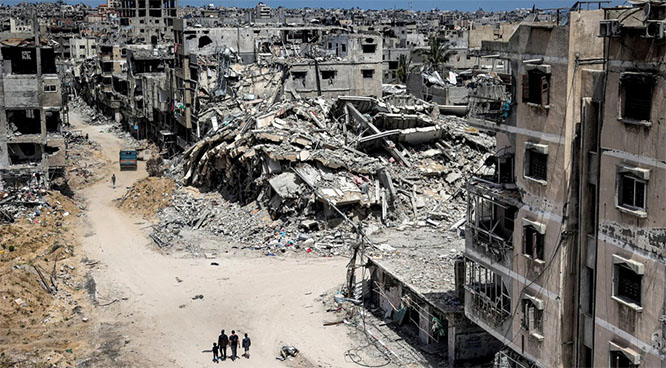Washington, Dec 10: President-elect Donald Trump shut down some of his companies in the days after the election, including four that appeared connected to a possible Saudi Arabia business venture, according to corporate registrations in Delaware.

News of the move comes days before Trump was expected to describe changes he is making to his businesses to avoid potential conflicts of interest as the US president.
The Trump Organization’s general counsel, Alan Garten, described shutting down the four companies as routine “housecleaning,” and said there was no existing Trump business venture in Saudi Arabia. The four Saudi-related companies were among at least nine companies that Trump filed paperwork to dissolve or cancel since the election.
The recent dissolutions represent a fraction of Trump’s global network of companies — the breadth of which has raised conflict-of-interest concerns about whether Trump can balance being an international businessman while conducting the nation’s business abroad as president.
Trump’s holdings include more than 500 private companies, some of which he creates for prospective deals. The complex and changing structure makes it difficult for Americans to track his financial interests and partners. Trump has disclosed the names and some details about companies in public filings. But a complete picture of Trump’s finances is unclear, given that he broke with decades of presidential precedent by not releasing his tax returns during the campaign.
Next week Trump said he plans to announce how he will separate himself from his business interests once he’s president.
Trump operates branded hotels and resorts in a handful of countries around the world, though he and his executives have talked about expanding more globally. Last year, Ivanka Trump singled out the Middle East and Saudi Arabia as potential locations.
During the campaign, he created eight companies that included Jeddah in their formal names. Four of those companies were shut down months after they were created. The other four were dissolved about one week after the election.
Trump for years has routinely named corporate entities after the projects to which they were connected. Companies set up as part of licensing or management deals in Indonesia and India bear the names of the cities where those projects are located. The same is true for some of his companies connected to properties and business ventures in the United States.
Garten said Friday that the dissolution of the companies, which occurred last month, was part of a periodic process to shed corporate entities that were no longer needed or were set up for ventures that did not materialize. Garten said he did not know why the companies were set up last year or whether they involved a business ventures in Saudi Arabia that didn’t happen.
“I’m not aware of any deal in Saudi Arabia,” Garten told The Associated Press. “I’ll go further, there is no deal in Saudi Arabia.”
Garten declined to say whether the closures were related to Trump’s election or his expected announcement next week about how he will be handling his businesses as president.
There is nothing preventing Trump from establishing new businesses or using his existing companies to expand in Saudi Arabia and elsewhere. There also is nothing to prevent his children from re-establishing the same companies he shut down, but in a different name.
Trump also shut down several shell companies that he had created over the past seven years which had no listed income or value. For instance, Trump Marks Magazine Corp., founded in 2007, had no listed value and was dissolved the day after the election, according to Delaware corporation documents.
Some of the now-dissolved Trump entities are US-based limited liability companies, legal structures that provide owners with limited legal and tax protections. The entities, commonly abbreviated as LLCs, often offer owners “pass-throughs,” ensuring that they are taxed only for the income they receive.








Comments
Add new comment